DDR5 Fuels New Memory-Hungry Applications Latest Memory Standard Delivers 2X the Speed, 4X the Capacity, and Greater Power Efficiency Compared with DDR4
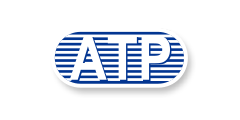



ATP ELECTRONICS launched the new Double Data Rate 5 (DDR5), the next-generation random-access memory (RAM) specification, is poised to exceed DDR4 in every way.
DDR5 promises faster performance, higher memory bandwidth, higher densities, and a new power management structure that delivers better power efficiency. All of these advantages, and more, are expected to meet the ever-growing memory needs of present and future applications.
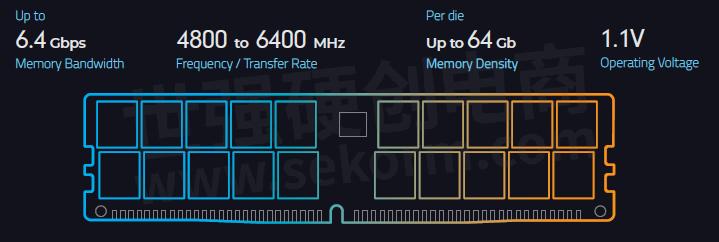
Both DDR4 and DDR5 dual-inline memory modules (DIMMs) have 288 pins, but with DDR5's higher bandwidth, this means it can transmit data faster. While the pin count is the same, DDR5 DIMMs will not fit in DDR4 sockets as the alignment key is located differently and the pinouts have been changed to accommodate the new features.

DDR5 vs. DDR4 Alignment Keys
DDR5 Advantages Over DDR4
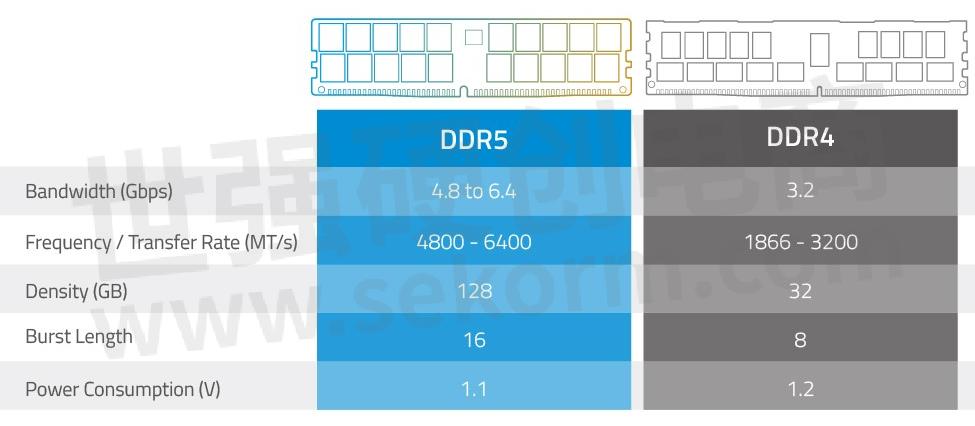
DDR5 vs. DDR4 Quick Comparison
Memory Bandwidth
This refers to the theoretical maximum amount of data that can be transmitted (read/written) within a given time. Memory bandwidth is expressed in gigabits per second (Gbps). DDR5 memory bandwidth is initially at 4.8Gbps per pin, compared with DDR4's 3.2Gbps. Future versions are expected to double DDR4's, going up to a maximum of 6.4Gbps.
Frequency/Transfer Rate
Memory frequency refers to the number of commands or transfer operations that the memory module can handle per second. It is typically expressed in megahertz (MHz), but some manufacturers use express this in mega transfers per second (MT/s). The number follows the DDR version, so a DDR5-4800 DIMM, for example, has a frequency of 4800MHz (or 4800MT/s).
DDR4 frequency ranges from 1866 to 3200MHz, while DDR5 ranges from 4800 to 6400MHz initially, but may go as high as 8400MHz.
Memory Density
DDR4 maximum density is 16Gb per die, so with 16 dies, this translates to 256Gbit or a total of 32GB. DDR5, in comparison, has 64Gb per die, translating to 1024Gbit or a total of 128GB – this is 4X that of DDR4, enabling higher-capacity DIMMS!
Burst Length
This is the amount of data, which is input/output based on a single read/write command in DRAM. DDR5 doubles DDR4 burst length from 8 to 16, thus increasing the read/write efficiency.
Power Management and Consumption
The first power management IC (PMIC) on DIMM is introduced in DDR5. PMIC performs local voltage regulation on the module. Historically, voltage regulation has been done on the motherboard. PMIC on the module allows additional features such as threshold protection, error injection capabilities, programmable power-on sequence, and power management features (Source: Micron). DDR5's lower voltage of 1.1V compared with DDR4's 1.2V further reduces power consumption.
Summary: Important Spec Enhancements
The following table summarizes important enhancements of DDR5 from DDR4.

ATP Market Outlook
While many module houses started sampling 1st Gen. DDR5 to customers in 2021,the price gap at the functional level to justify the adoption for DDR5 over DDR4 is too wide to consider in ATP's view.
The following table shows that in the early stage, the price gap between DDR4 and DDR5 is over 50%. The transition may be slower than expected, but adoption is gaining traction. DDR5 is expected to become the dominant memory in the coming years as demand for faster memory with greater capacity and consuming less power is expected to expand and will not slow down anytime soon.
ATP is expecting significant market growth when processors and platforms supporting DDR5 become prevalent. With the release of Intel’s 12th generation Core hybrid processors supporting both DDR4 and DDR5, adoption is expected to increase steadily, even though motherboards will support only one or the other.

Insider Tips on Time-to-Market for DDR5
Price is key. Future die shrink and optimizer will lead to a better commercial situation for DDR5 adoption.
ATP is projecting that the DDR5 ecosystem will start building up within the first half of 2022 and new products will roll out.
While first usage will be in consumer applications, contract manufacturers (CMs) and electronic manufacturing services (EMS) will soon develop relevant platforms initially for approved vendors list (AVL).
By 2023, better adoption is expected, and speed will upgrade to 5600 MT/s. More new product introductions will focus on DDR5 and the price gap with DDR4 narrows down to 15-20%.
Finally, 2024 will be sweet spot for DDR5 products.The following table provides a summary of the DDR5 time frame.
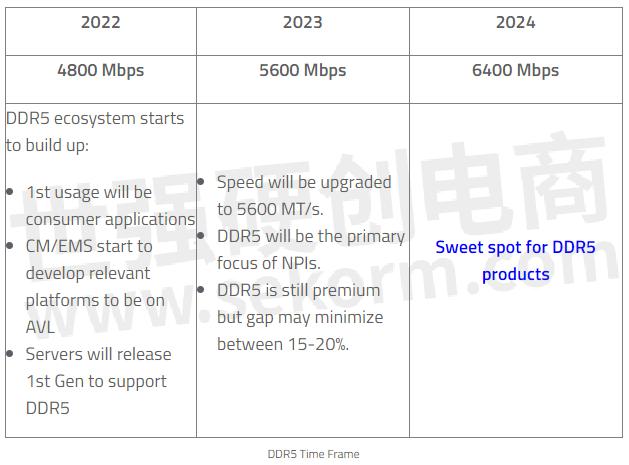
ATP Electronics is committed to meeting the most rigid memory requirements of varied industries. The next-generation DDR5 memory modules are expected to deliver performance and reliability improvements over the previous generation, especially for critical computing applications.
- |
- +1 赞 0
- 收藏
- 评论 0
本文由蜜糖7777转载自ATP ELECTRONICS,原文标题为:DDR5 Fuels New Memory-Hungry Applications Latest Memory Standard Delivers 2X the Speed, 4X the Capacity, and Greater Power Efficiency Compared with DDR4,本站所有转载文章系出于传递更多信息之目的,且明确注明来源,不希望被转载的媒体或个人可与我们联系,我们将立即进行删除处理。
相关研发服务和供应服务
相关推荐
ATP‘s Fastest “Industrial Only” DDR4-3200 DRAM Modules with the Transfer speed of up to 3200MT/s
ATP DDR4-3200 DRAM modules with wide-temperature ICs perform reliably in harsh environments. ATP implements module-level tests during burn-in (TDBI) to expose weak modules and detect and screen out even 0.01% error, thus ensuring utmost module reliability and long-term endurance.
【产品】传输速率高达300MT/s的DDR4-3200 DRAM模块,工作电压仅1.2V
由于最新一代处理器性能的提高,系统运行速度更快,处理数据的速度也更快。当CPU变得更快时,它们也需要更快的内存。ATP Electronics推出的DDR4-3200解决方案,充分发挥了AMD EPYC™ 系列和第二代Intel®Xeon®可扩展处理器的性能,也可用于未来的AMD Milan和Genoa以及Intel® Cooper Lake和Ice Lake处理器。
DDR4-3200 DRAM Solutions Deliver Memory Boost to AMD EPYC™ and 2nd Gen Intel® Xeon® Scal | ATP
Taipei, Taiwan (March 2020) – ATP Electronics announces the release of fast, low-power DDR4-3200 solutions to take full advantage of the latest AMD EPYC™ Family and 2nd Generation Intel® Xeon® Scalable Processors (formerly codenamed Rome and Cascade Lake, respectively). ATP’s DDR4-3200 modules ensure a big boost in performance, compute density and productivity with their fast 3200 MT/s data rate to optimize the power of AMD’s eight-memory channel and Intel’s six-memory channel architectures.
【技术】解析DDR4与DDR3模块的差异和优势
ATP ELECTRONICS第四代双倍数据速率(DDR4)是一种内存标准,旨在更好,更快,更可靠地替代DDR3。本文介绍DDR4与DDR3模块相比的差异和优势。
DDR4:Intense Performance for Intense Workloads
型号- DDR4-3200,A4G04QC6BNWEMO,A4G08QC6BVWEMO,A4G08QC6BVTDMO,DDR4-2666,A4G32QE8BVTDMO,A4G32QE8BVWEMO,A4G16QA8BVWEMO,A4G16QA8BVTDMO,A4G04QC6BNTDMO
FORESEE存储器选型表
FORESEE存储产品有内存模块、固态硬盘、闪存、eMMC等。工规MSATA SSD,工规 SATA M.2 2242 SSD,工规 SATA M.2 2280 SSD,商规DDR3L,用于工业电脑,轨道交通,工业设备,电力设备,服务器,POS机,医疗设备等。工规PPI SLC NAND FLASH,工规NMCP,工规PPI SLC NAND FLASH,工规SPI SLC NAND FLASH,用于电视,机顶盒,网通,IPC,行车记录仪,智能手环等。车规II EMMC,车规III EMMC,应用于车载前装,智能仪表,IVI,ADAS,域控,BMS,记录仪。工规EMMC,用于耐用性消费类电子,车载后装,商显,TV,黑白家电等。工业宽温EMMC,用于工业控制,通讯基站,智能电网,车载前装。
|
产品型号
|
品类
|
Density(Mb、Gb、GB、TB)
|
Speed(MT/s、Gbps、MHz)
|
Voltage (V)
|
Memory
|
Temp. Range (℃)
|
Bus
|
Interface
|
Package
|
Size (mm)
|
|
FI4S26M016GSC3
|
DDR4 DIMM
|
16GB
|
2666MT/s
|
1.2V
|
DDR4
|
0℃ to 85℃
|
64bits
|
260pin
|
SODIMM
|
69.6 x 30mm
|
选型表 - FORESEE 立即选型
【经验】淼森波实验室DDR测试案例,如何区分DDR1,DDR2,DDR3,DDR4还有DDR5?
DDR1、DDR2、DDR3、DDR4和DDR5都是不同类型的同步动态随机存取存储器,它们提供了不同的性能和带宽,并不断演进和发展。 都是不同类型的内存规格,它们的速度、带宽、工作电压和能耗等方面都有所不同,DDR5 内存规格最高,速度最快,带宽最宽,能耗最低。
DDR5 VLP ECC UDIMM
型号- SR2G7UD5285SBV,SR4G7UD5288HAV,SRI2G7UD5285SBV,SR2G7UD5288SBV,SR6G7UD5388HMV,SR6G7UD5385HMV,SR4G7UD5288SBV,SR4G7UD5285SBV,SRI4G7UD5285SBV,SR4G7UD5288MDV
SMART内存模块-Dura Memory选型表
SMART提供以下技术参数的Dura Memory产品选型,品类:MIP,NVDIMM,RDIMM,SODIMM,UDIMM,XRDIMM,内存条;DDR3/4/5;容量:12MB-256GB;数据速率1333MT/s-4800MT/s;组件配置;工作温度范围:-40˚C 至 +85˚C
|
产品型号
|
品类
|
DDR
|
DIMM 类型
|
容量
|
数据速率
|
组件配置
|
工作温度范围
|
|
ST4097MU44D825SAV
|
UDIMM
|
DDR4
|
VLP Mini UDIMM
|
32GB
|
3200MT/s
|
2Gx8
|
C 温度(0˚C 至 +70˚C)
|
选型表 - SMART 立即选型
得润电子(DEREN)DDR系列连接器选型指南
目录- DDR4 Series Connector DDR5 Series Connector
型号- 56 7Y D2-001HXRXXR-SQ,568QD1-001HXXXXX-SQ,568QD0-001HXXXXX-SQ,40-42057-2880*******,40-42057-2881*******,40-42057-2882*******,56 7Y D2-002HXSXXR-SQ,40-42181-288XXXXXTX,567U10-00XH-SQ,568QD1-002HXXXXXH-SQ,40-42272-2600XRHF-SQ,40-42273-2600XRHF-SQ,40-42275-2600XRHF-SQ,40-42274-2600XRHF-SQ,40-42057-288XXXXXTX,40-42277-2600XRHF-SQ,40-42181-2881*******,40-42181-2880*******,40-42181-2882*******,40-42276-2600XRHF-SQ,40-42560-288XXXXXTX,40-42057-2883*******,56 7Y D2-001HXSXXR-SQ,40-42181-2883*******,56 7Y D2-002HXRXXR-SQ,567U11-00XH-SQ
DDR5 Memory Modules
型号- SR2G7UD5285SBV,SR6G7UD5385HM,SRI2G7UD5285SBV,SR6G7UD5388HMV,SR6G6SO5385MB,SR4G7SO5285SB,SR2G7SO5288HA,SRI2G7UD5285SB,SR6G7UD5388HM,SR4G8RD5285SBV,SR4G7SO5288SB,SR4G8RD5288HAV,SR6G7UD5385HMV,SR6G6SO5385HM,SRI4G7SO5285SB,SR3G6SO5385HM,SR6G7SO5388HM,SR4G7UD5288SB,SR4G8RD5285SB,SRI2G7SO5285SB,SR4G7UD5285SB,SR2G7UD5288SBV,SRI6G7UD5385MB,SR4G7UD5285SBV,SR2G7UD5288SB,SR6G8RD5388HMV,ST4G7SO5285SB,SR2G7UD5285SB,SRI4G7UD5285SBV,SR4G8RD5288SBV,SR4G7UD5288MDV,SR2G7SO5285SB,SR4G8RD5285HAV,SR4G6SO5288SB,SR6G7UD5385MB,SR2G6SO5285SB,SR2G7SO5288SB,SR4G7UD5288HAV,SR4G6SO5285SB,SRI4G7UD5285SB,SR4G7SO5288HA,SRI2G7SO5288HA,SR4G8RD5288MDV,SRI6G7UD5385HM,SR4G7UD5288SBV,SR2G6SO5288SB
电科星拓芯片选型表
电科星拓提供以下技术参数的芯片选型表,包含:时钟Buffer芯片、时钟发生器芯片、I2C接口芯片、数字温度传感器芯片、PCIe Bridge(转SATA)芯片、DDR5 RCD芯片、DDR5 SPD Hub芯片、CDR芯片、电源管理芯片
|
产品型号
|
品类
|
系列
|
规格
|
状态
|
封装
|
|
TBUF0320
|
时钟Buffer芯片
|
TBUF系列
|
20路DB2000QL CLK Buffer (LPHCSL)
|
MP
|
LGA80
|
选型表 - 电科星拓 立即选型
【选型】DDR4与DDR3模块相比的差异和优势
ATP ELECTRONICS第四代双倍数据速率(DDR4)是一种内存标准,旨在更好,更快,更可靠地替代DDR3。DDR4具有288个引脚,而DDR3具有240个引脚。DDR4 SO-DIMM具有260个引脚,而不是DDR3中的204个引脚。本文还介绍了其他DDR4与上一代模块相比的差异和优势。
电子商城
服务
可定制ATP TE Cooler的冷却功率:40~200W;运行电压:12/24/48V(DC);控温精度:≤±0.1℃; 尺寸:冷面:20*20~500*300;热面:60*60~540*400 (长*宽;单位mm)。
最小起订量: 1 提交需求>








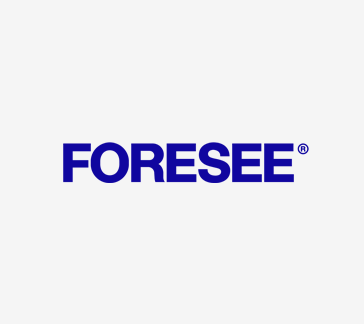



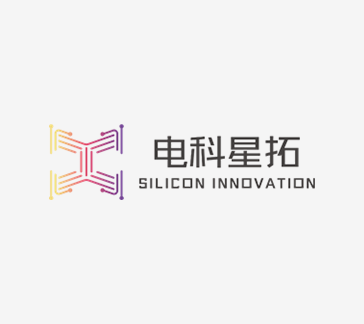























































































































































































登录 | 立即注册
提交评论